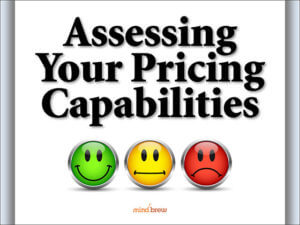I recently had the pleasure of getting Reed Holden to participate in an interview for the PricingBrew Journal. For those who may not be aware, Reed is a legend in the pricing community and godfather of the modern pricing practice.
As a co-author of the original editions of “The Strategy and Tactics of Pricing”—a book that introduced many of us to the power and importance of pricing over two decades ago—Reed helped create and define the practice of pricing as we know it. Since then, he’s become a “triple threat” in that he and his firm, Holden Advisors, are not only leaders in pricing, but also the interrelated practices of value creation and sales effectiveness.
In our interview with Reed, we touched on a number of subjects, ranging from how and why pricing problems manifest in B2B environments to exploring some basic steps people can take toward rectifying the situation and gaining more control.
But what I found to be particularly insightful was Reed’s identification of trust—or lack thereof—as an underlying or “hidden” problem in many of the companies he’s worked with.
After all, it’s easy to see how various groups inside a company might not trust their sales group to “make it happen” in the field. In fact, this seems to be a pretty common and shopworn theme in the pricing and product management communities.
What may not be so obvious, however, is that very often, salespeople don’t trust product and pricing managers, either. They don’t believe the value-propositions they put together. They don’t trust the pricing models they develop. And, they don’t believe their work is based on an accurate understanding of customers and competitors.
And according to Reed, this lack of trust amongst salespeople then leads to a lack of confidence in the field. Which leads to more discounting. Which then leads to more distrust of the sales group. Can you see the vicious cycle here?
And it’s all based on a lack of trust…one that runs both ways.













